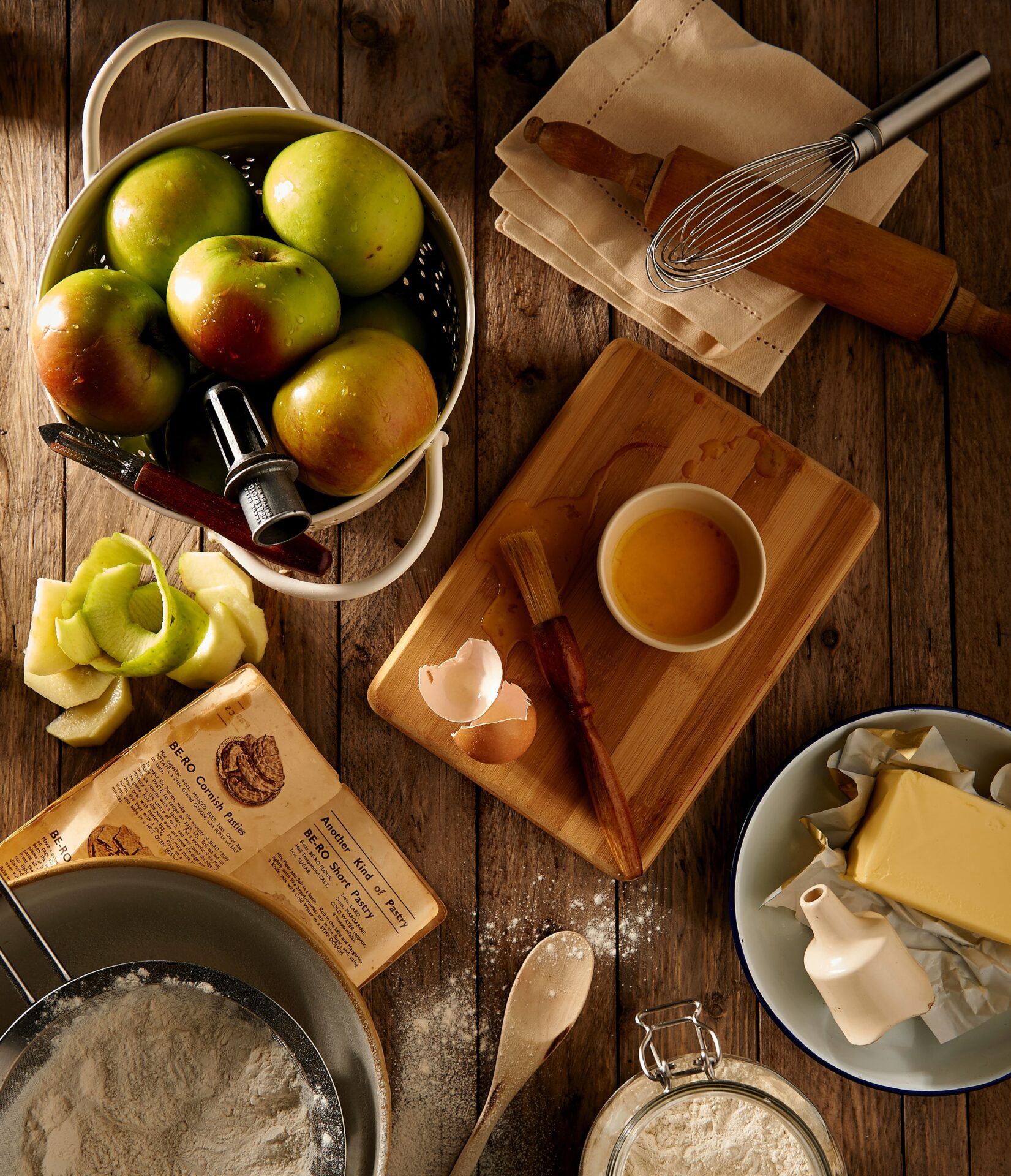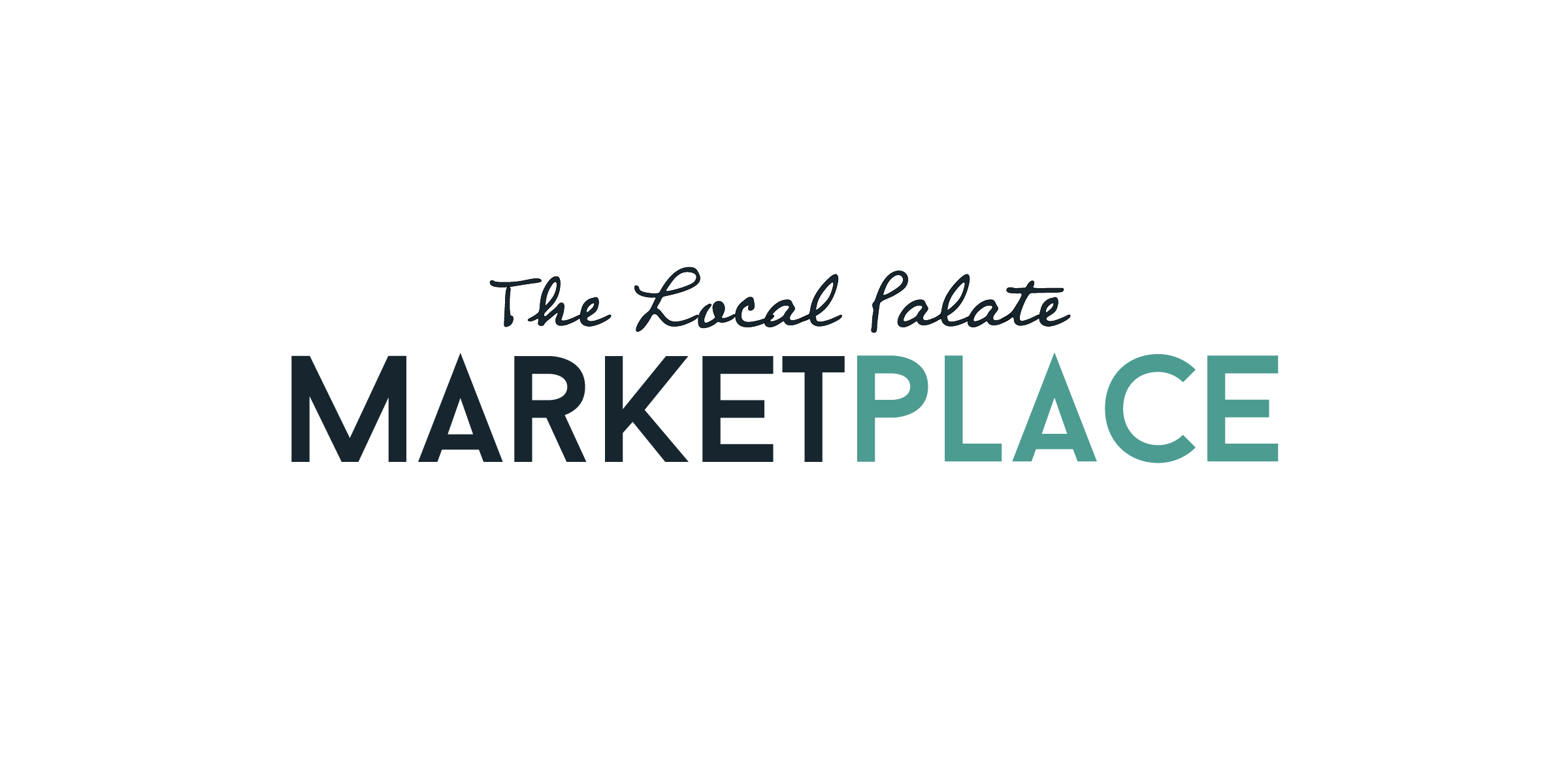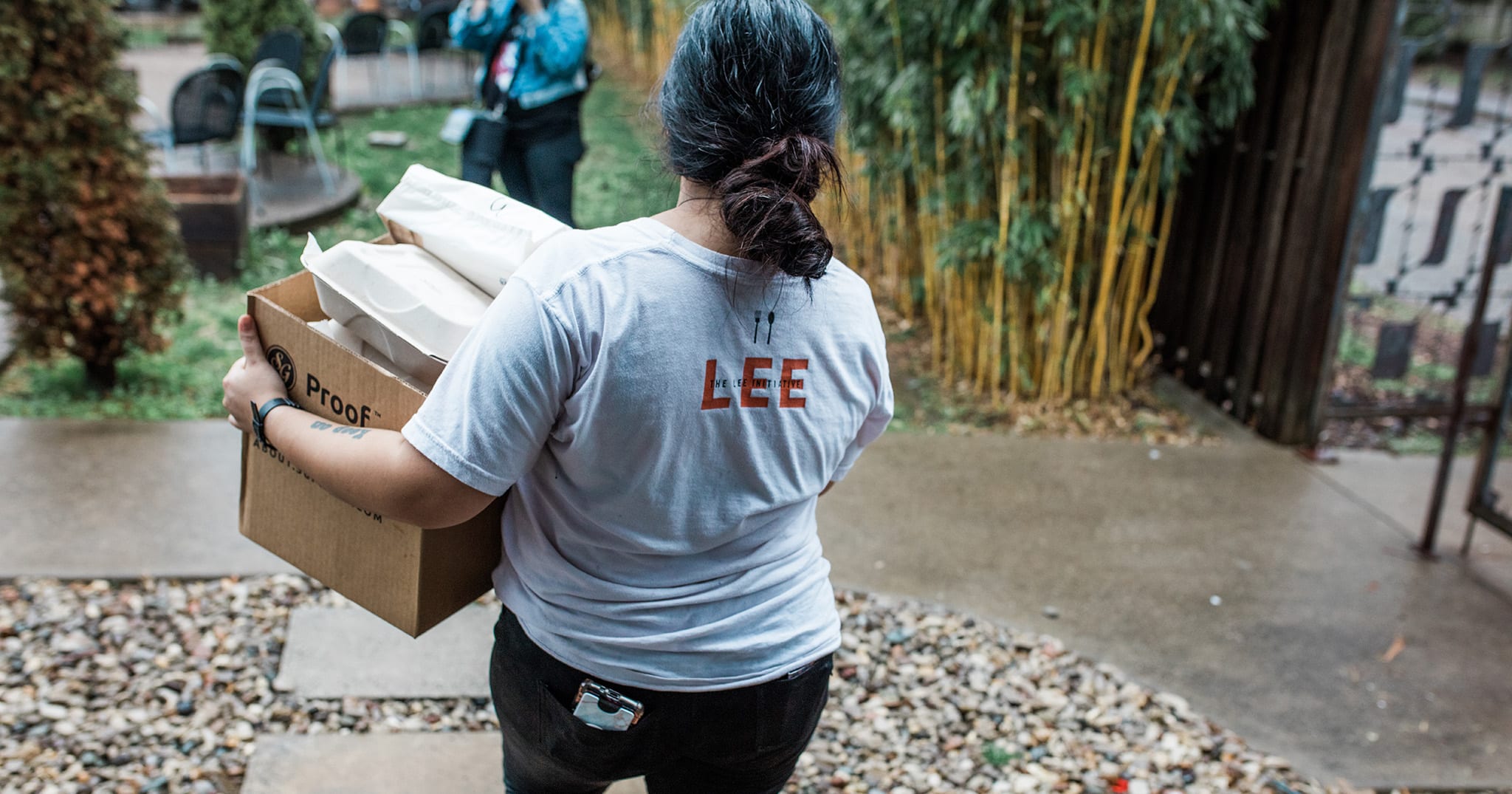For a man whose life revolves around the restaurant industry that has substantially ground to a halt due to the Coronavirus pandemic, chef Edward Lee is still keeping himself incredibly busy.
He splits his time shuttling back and forth between Louisville, where he operates 610 Magnolia, MilkWood and Whiskey Drive, and the Washington D.C. area, home to his two Southern/Korean hybrid restaurants Succotash. While maintaining this successful culinary empire, Lee also dedicates an extraordinary amount of time and effort to his Lee Initiative, an effort he started in 2015 along with co-founder and Managing Director Lindsey Ofcacek.
While the name is obviously a nod to the chef, it also stands for “Let’s Empower Employment,” a statement of the initiative’s mission to expand diversity, training and equality within the restaurant industry. Prior to the current crisis, the Lee Initiative concentrated on two key programs:

The Women Chefs Initiative, a six-month leadership development program for women chefs, and The Smoke & Soul Initiative, a 40-week immersive restaurant mentorship program for young adults. Lee has partnered with an amazing group of female chefs to serve as mentors for annual groups of five female chefs from Kentucky, Southern Indiana and Cincinnati to learn from successful culinary leaders, to give the young apprentices hands-on experience in the kitchen and to offer leadership skills-building opportunities. Among the talented chefs who have served as mentors over the past few years are Katie Button, Ashley Christensen, Nina Compton, Anne Quatrano and others.

With the advent of the pandemic, Lee immediately saw the need to expand the scope of the Lee Initiative to include assistance to the thousands of restaurant workers displaced by closures and furloughs. The aid comes in the form of a two-pronged effort under the umbrella of the Lee Initiative. One program is called The Restaurant Workers Relief Program, while the second goes by The Restaurant Reboot Relief Program. Lee launched The Restaurant Workers Relief Program in partnership with his friends at Maker’s Mark on Tuesday, March 17, working out of the catering kitchen of Lee’s 610 Magnolia, and has since expanded to include services offered out of 19 kitchens nationwide, with more than 150,000 meals served thus far to hospitality workers enduring the massive layoffs that accompanied the onset of COVID-19.
The Restaurant Reboot Relief Program seeks to address the potential crises within the supply chains for farmers and restaurant operators who are committed to sustainable food and has committed at least $1 million to purchasing food from sustainable farmers in 16 regions and giving that food directly to restaurants in those areas. The restaurants that have hosted relief centers in those areas as part of the RWRP will be receiving the food and helping to select which other restaurants will also be receiving the bounty.
Speaking with Lee, it’s apparent that he is feeling the strain and the pain of his beloved industry. Clearly, he’s had a lot of time on those nine-hour drives between Kentucky and D.C. to contemplate the dire straits restaurants, specifically, independent ones, find themselves in. He alternately speaks of desperation within the ecosystem of farmers, purveyors and distributors before grasping at the hope for a better future in the new reality of tomorrow.
“Whenever there’s a crisis situation,” Lee shares, “the natural inclination is to think about yourself and to worry about what your struggle is going to be. But we’re all struggling; no one is immune from this. (No pun intended.) For me, you can’t forget about the people who are struggling harder. I’m struggling, but I know that the bartenders, the dishwashers, the bus boys, the phone receptionists, the hostesses, they’re struggling really hard. These are the people that we rely on time and time again to execute our vision. They’re the backbone of our industry. We call on them all the time, and they always answer the call. They’re the people on the front line of our industry. We wouldn’t have this restaurant revolution if it weren’t for the army of people who do that work.”

Lee continues, “When this blows over we’re going to have to rehire them. If we turn our backs on them in the meantime and just leave them hanging, they’ll still come back to work. They have to, but they won’t have the same energy and the same love and the same passion. The reason restaurants have been so successful in the past two decades is not because of us chefs, specifically. It’s because we were all in this together, and we all had the same love and passions, and we worked beyond what we were asked to do. We didn’t just create jobs; we created a culture. We created a family, and family looks out for each other.”
Lee put himself in the shoes of the hundreds of employees he was forced to lay off: “If someone’s not taking care of me, I’m not going to want to come back to this job, this industry. What happened to family? For so many of us, there’s only so much you can do. Everyone’s in a bad situation, so when we started this program at least it’s a way for me to just say to my crew and to the people in Louisville where we started this program ‘I see you. I understand the struggle, and it’s not a hell of a lot, but it’s something.”

Lee closed down service at 610 Magnolia and reopened the restaurant as a relief kitchen for displaced hospitality workers, feeding hundreds a day. “These are tasty meals,” shares Lee. “It’s not a soup kitchen. When we started this six weeks ago, no one knew what was going on, and people were really worried and panicking. Sometimes having a place to go to becomes a routine. We still have people who come every night. For a lot of them, it’s like the one thing they look forward to: grabbing a meal, chit chatting a little bit and catching up. Beyond the food and the supplies, it offers people hope. It gives them a little sense of normalcy throughout all this craziness, and sometimes that’s all you need is a sense of community and togetherness and humanity. It’s what restaurants are; it’s what we do. We’re a place of community. It’s just different now. You see the same people every day, and it becomes a new normal. It may be that all a person needs to not do something irrational or make a bad decision is to know that there’s a community out there that cares about you and is helping you. We’re doing all we can.”
Lee has discovered that his relief kitchens are offering much more than just sustenance for the hungry: “Sometimes people come and don’t even pick up a meal. They just come and say ‘I don’t need a meal. Give it to someone else.’ People who are struggling so badly, and they’re trying to volunteer. That means we’re offering a place of solace, and those places are so important at this time. Everything is closed. For some people that place was their church, and those are closed. But for other people, their church was the local bar.Every place where you can gather is closed. That sense of being alone and unseen and unheard is so dangerous.”

Lee reached out to many partners to help provide the food that his kitchen cooks for the nightly visitors in addition to the multiple other relief kitchens he has helped to set up in cities across the country from Seattle to Chicago to Nashville to New York. He explains, “It’s been huge partnerships, and we’ve had great sponsors like Maker’s Mark, Tabasco, US Foods, Chefs Warehouse. Every market’s different. The hotels have been so helpful. You talk about a place that has tons of food, the Omni Hotel here in Louisville had like 17 different kitchens and food outlets throughout the hotel, and they all got rid of their food. Once they heard what we were doing, they called us and said they were getting rid of this food and do you want it? We said ‘Sure!,’ and they came in with like four vanloads of food. American Airlines has been donating the food that was earmarked for their Business Class meals. Once it has an expiration date, they can’t use it.”
The team behind The Restaurant Workers Relief Program has stayed busy organizing the nightly meals, as Lee explains, “We’ve been on the phone constantly day in and day out calling all these people and figuring out what we can do and the logistics of how to get food here and there. We do ask the individual restaurant partners in each city to figure out a lot of their own logistics, and they have. It’s been incredible to see. There’s an entire massive behemoth of a food industry that just feeds people, from airlines to cafeterias to sports venues, and they all had food that was expiring. In the DC area, we got 2000 lbs. of mashed potatoes delivered overnight! We’re calling any company that has to deal with food, and there are thousands of them out there. They all have food that’s expiring, and we’re trying to get our hands on it.”
Lee sees this situation as a portent of more trouble ahead. He warns, “The idea to close every single restaurant across the country was completely insane! We are seeing a complete breakdown of our food system, the whole chain from food suppliers, farmers, truckers, purveyors all the way down through restaurants and the people we all employ is broken. The decision was not thought through clearly enough. They thought closing restaurants would just be an inconvenience. Now we’ve created an unsafe space for the average consumer who is having to figure out how to feed themselves. The majority of Americans do not know how to cook, period. They don’t necessarily have the time, the money or the wherewithal to feed themselves. All the sudden you’re asking these people to prepare three meals a day for families of four or five? It’s impossible.”
The solution to the breakdown of the food supply chain could also be the answer to saving restaurants, says Lee, “We’re getting food donations where we can, but we also have to spend money on some of these ingredients as well because we have to keep that supply chain going. I know I have farmers who are wondering if they’ll have a business when this is all done, because they don’t have the money now to seed the new seasonal crops or to get the new herd going. They’re in the same boat that we are, so if we have some money that we can spend on them, they also have to make a dollar, too. What happens if at the end of all this we chefs don’t have somewhere to buy organic beef or farm-raised pigs? Then we can’t do what we do. In some ways, many chefs are just middlemen between farmers and consumers, so we have to make sure these farms can still exist.” Lee also wants to involve restaurants in feeding more than just their fellow hospitality workers, but some sadness creeps into the normally gregarious chef’s voice as he shares, “We’re trying to support the entire supply chain. The hard part is that each individual restaurant that we mobilize is doing incredible work, but it’s only 19 restaurants.

We need hundreds, but we don’t have the funding for that. We need thousands to keep the economy working, to keep people employed. I know we have to do it safely and respect and understand that we live in this crazy time where we have to keep social distancing, but every single week that goes by it just becomes more treacherous for us, for our farmers, for the whole supply chain. We’re just doing whatever we can to keep it going so that we have something left when we get back from this. I don’t know what’s going to be left of the restaurant industry. It’s going to take a lot longer to rebuild this than someone just green lighting, some governor saying it’s ok to open up again for business. That’s just not the way it’s going to go.”

Chef Lee believes that independent restaurants can be key to the recovery, but there are some caveats as consumers become more dependent on the carryout models that have been perfected by national chains like Chick-fil-A and Sonic: “That’s always what the independent restaurant movement has been. We’re seeing that what our greatest asset was is also our greatest liability. We’re all fiercely independent. We don’t follow rules, and we don’t replicate. We all want to be completely unique. In the best of times, that’s what made us so special. In the worst of times, it’s also what hurts us. We’re not one unit. We are thousands and thousands of fiercely independent units. And that word ‘independent’ is so telling. Like when I see the Independent Restaurant Coalition, it’s kind of like a contradiction in terms. You can’t be independent and a coalition at the same time. We are having to do that, and I think that’s one of the greatest things that we’re going to come out of this with is the understanding that we are one big family. We’re going to have to come to the table and realize that together we’re stronger. Our competition is not with each other. It’s with these big chain restaurants that economically do have the correct business model. But that’s what we fought against. We’re artists. We’ll see what’s left of the industry and our independence and our character. We’ll see how strong our resolve is. It’s going to be tough. There’s no easy way.”

Despite his monumental efforts to aid the hospitality industry in general, Lee is uncomfortable considering himself one of its leaders. Instead he believes, “What this crisis has shown is that every single person out there is a leader in their own way. There are a couple of voices out there that speak on behalf of the restaurant industry, and that’s fine. There are always people who are loudspeakers in this world. In my world and the day-to-day, I see a local chef who’s doing takeout but also providing free meals to his staff and trying to do good and delivering some leftover meals to the food pantry here. That person’s a leader! Basically, anyone that owns a small business is an incredible leader; they’re stepping up in their own way. What we need now is hundreds of thousands of leaders who affect their own community, even if their community is a three-block radius. That’s fine. We need hundreds of thousands of people who are going to help hundreds of millions of people!”
Lee concludes hopefully and humbly, “I’m trying to do what I can with the funding that I have. Everyone is doing something in their own way. And to me that’s leadership. Not sitting there and folding and crumbling by the weight of this. Everyone is stepping up in the way that they can, and that’s incredible. If there’s something that’s a positive to come out of all this, it’s that we’ve proven that in this industry again and again, we step up and do the right thing and we help each other out, and this has proven no different. Every single restaurateur, every owner, every chef that I know personally from the famous ones to the guy running the little takeout store down the street from my house, every single one of them has stepped up and said, ‘How can I help?’ Not, ‘What are you going to do for me,’ but ‘how can I help?’ And that’s who we are in the hospitality industry, and every single one of them should be applauded and commended and have a story written about them. And that’s how we get through this. There’s no politician that is going to get us through this. Unfortunately, there’s no one blanket policy that’s going to solve all this. What’s going to get us through this is that we all help each other. It could be as small as helping out your neighbor or as big as feeding a million people. But to me, all of it counts equally right now. We all have to get out there and help each other!”
If you want to help support the Lee Initiative and its many good works, visit their website for more information.
share
trending content
-
Fall for Hattiesburg: Your Ultimate Autumn Adventure in the Hub City
by TLP's Partners -
Geaux Bold in the Cajun Bayou
by TLP's Partners -
Exclusive Q&A with Michael W. Twitty
by Emily Havener -
Nashville’s Hottest New Restaurants Are Now Open
by Erin Byers Murray -
Amelia Island Cookout 2025 Brings Island-Wide Culinary Celebration
by TLP's Partners
More From In the Field
-
Going With the Grain
-
Off the Beaten Path in South Carolina
-
One Night at Duck Camp
-
Curating Joy at COLA
-
Seeds of Change | Listen









